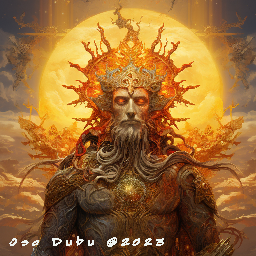Litha - Summer Solstice
Litha is the name of the Summer Solstice celebration in various Neopagan and Wiccan traditions. The Summer Solstice, also known as Midsummer, is the longest day of the year and marks the beginning of the astronomical summer. It typically occurs around June 20 or 21 in the Northern Hemisphere and December 20 or 21 in the Southern Hemisphere. In ancient cultures, the Summer Solstice was often celebrated as a time of fertility and the bounty of the coming harvest. In Neopagan and Wiccan traditions, Litha is celebrated as a time of growth and abundance, and it is often marked with rituals, bonfires, and feasts.
Pagans and Wiccans celebrate the Summer Solstice, also known as Litha, in a variety of ways. Some common practices include:
-
Outdoor rituals and celebrations: Many Pagans and Wiccans celebrate the Summer Solstice by holding rituals and ceremonies outdoors. This is often done near a bonfire or fire pit, which is thought to symbolize the Sun and the energy of the season.
-
Nature walks and meditation: Some Pagans and Wiccans celebrate the Summer Solstice by taking a walk in nature, either alone or with a group. This may include meditation, visualization, and other practices to connect with the natural world and the energy of the season.
-
Symbolism: Many pagans use symbols like sun wheel, a wreath of oak leaves, and other nature-based items that are related to solstice celebrations, and which has strong meanings related to the season and the season's energy
-
Feasting: Summer Solstice is also a time for feasting and community. Some pagans and Wiccans celebrate the solstice by sharing a meal with friends and loved ones, and some holds a communal feast with their covens or pagan groups.
-
Decorating: Some decorate their homes and altars with flowers, herbs, and other decorations that are associated with the season, and to infuse their homes with the energy of the season.
It is important to remember that not all pagans celebrate the solstice in the same way, and there are many variations in how the solstice is celebrated within the different pagan and Wiccan traditions.
